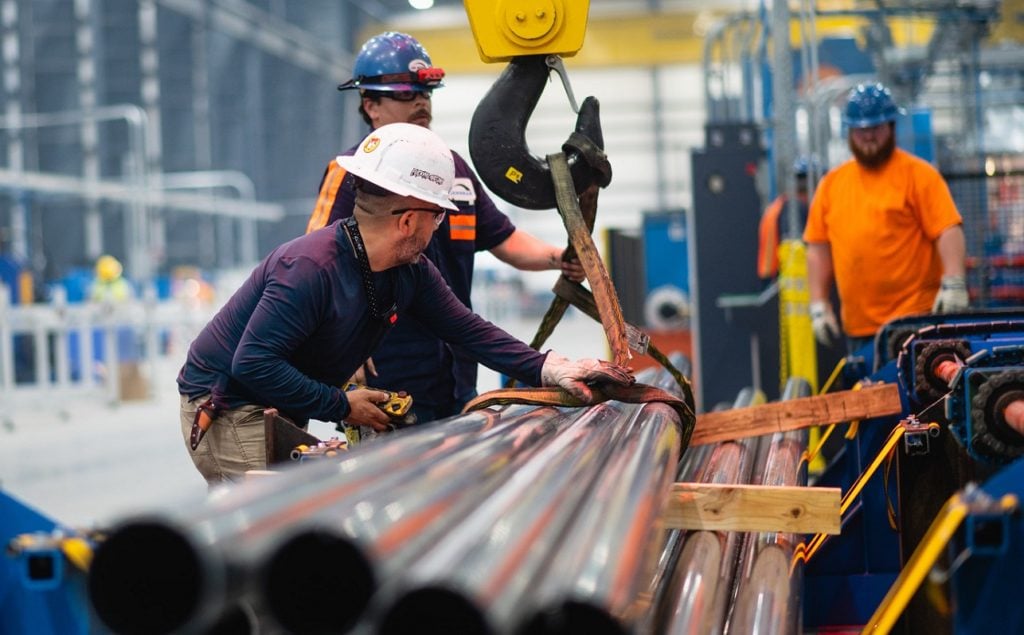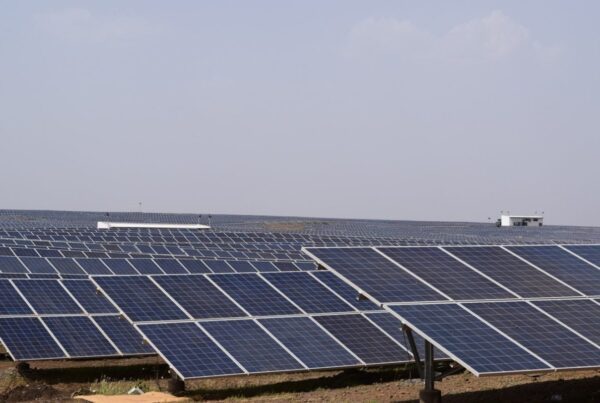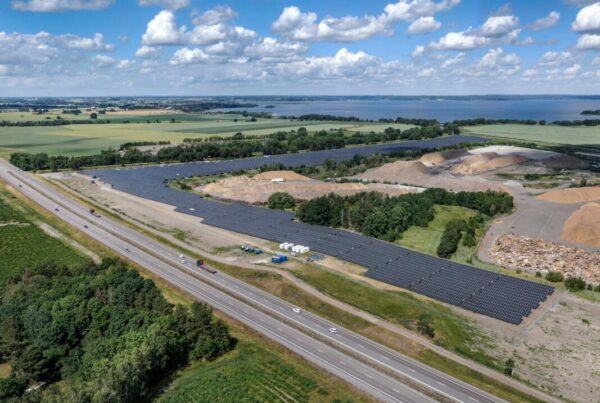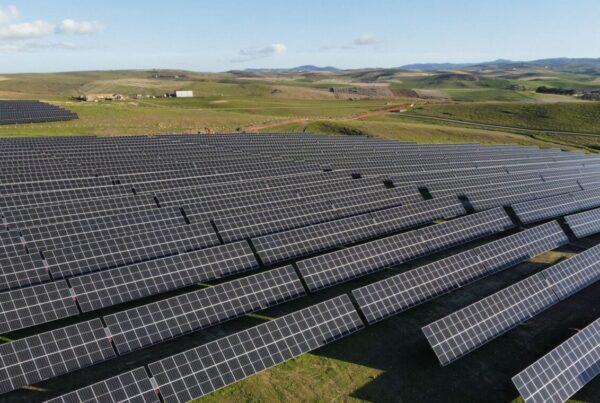
US tracker manufacturer Nextracker has responded to global supply chain disruptions by inaugurating a new production line in Texas within a campus from steel producer Steel Dynamics.
Located near Corpus Christi, the line will manufacture tracker components for use in solar projects across the south of the US and will have a multi-gigawatt annual tracker capacity when fully operational.
Nextracker is migrating to domestic production to stabilise pricing and achieve on-time delivery, said the company’s CEO and founder Dan Shugar. “Customers want protection from steel and logistics cost volatility, and logistics delays associated with shipping, containers, and ports.”
The move by the manufacturer to shore up supply disruptions comes as research suggests US utility-scale solar additions will contract this year as volatile commodity prices and supply chain uncertainty lead to project delays and cancellations.
Nextracker said it will have a dedicated supply of critical materials in one of the fastest-growing and biggest solar markets, with Texas having leapfrogged California last year as the top-ranked US state for solar capacity additions, deploying more than 6GW in 2021.
Giving Nextracker the ability to service key markets by truck, while also providing easy access to railroads and a deepwater port, the new line is the result of a collaboration with JM Steel, which operates a 97,000-square-foot facility at Steel Dynamics’ site.
The partners touted the sustainable production processes at the Steel Dynamics campus, with all steel used for the trackers made with the company’s Electric Arc Furnace technology, which utilises recycled or scrap steel as a raw material.
“US steel manufacturers like Steel Dynamics Incorporated have a much cleaner, lower carbon production processes than most overseas manufacturers,” Shugar said.
It was announced earlier this year that Nextracker will be spun out from parent company Flex after it secured a US$500 million equity sale, valuing the manufacturer at around US$3 billion.
The company has since launched a new single-axis tracker, dubbed NX Horizon-XTR, that is designed to expand the addressable market of solar projects on sites with sloped and uneven land.





